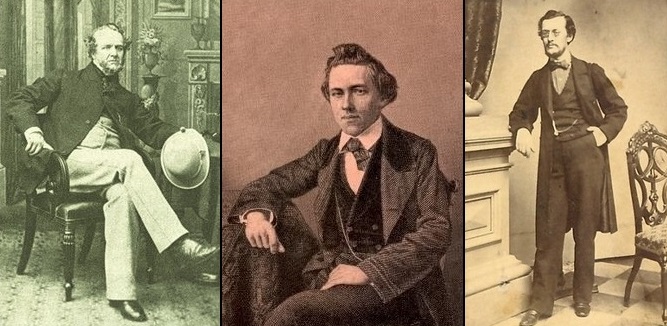
Edward Winter
A selection of episodes concerning the conduct, from the late 1980s onwards, of the English chess historian Kenneth Whyld (1926-2003).

From left to right: H. Staunton, P. Morphy, F.M. Edge
The Staunton-Morphy Controversy
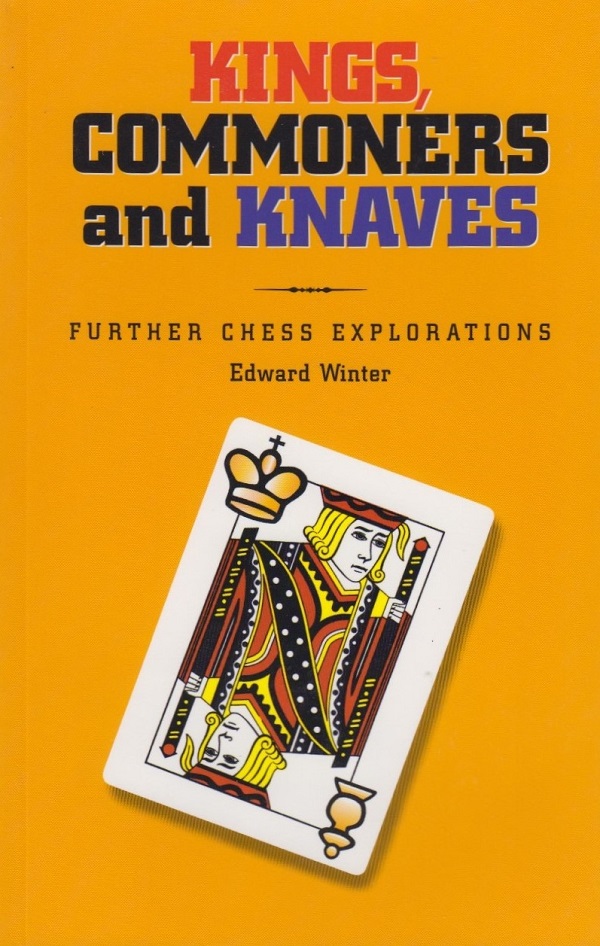
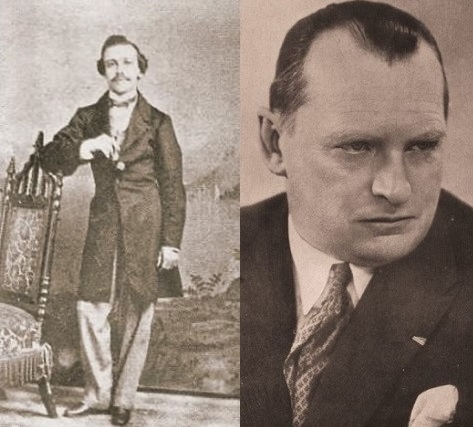
P. Morphy and A. Alekhine
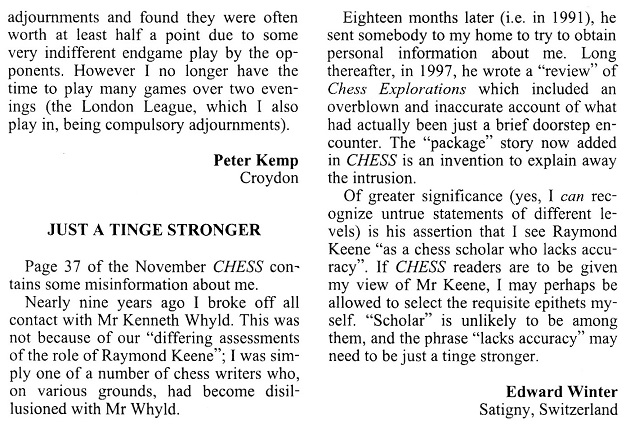
CHESS, December 1998, page 44
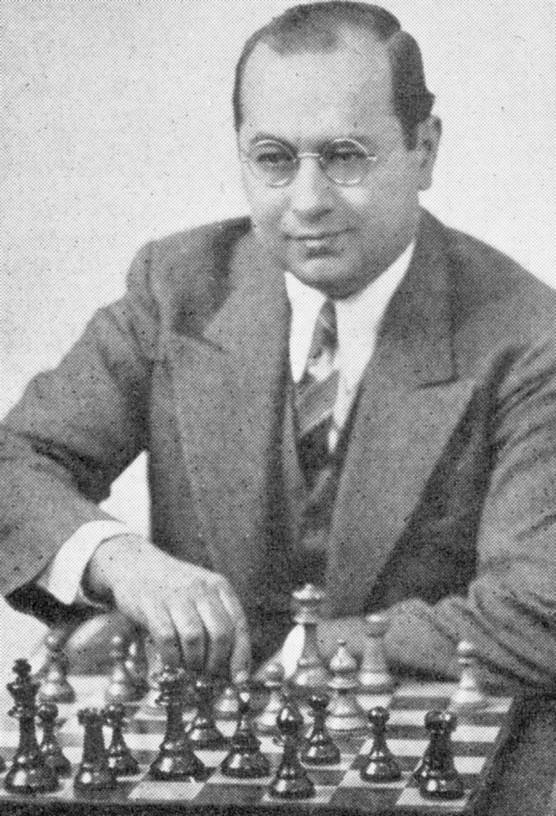
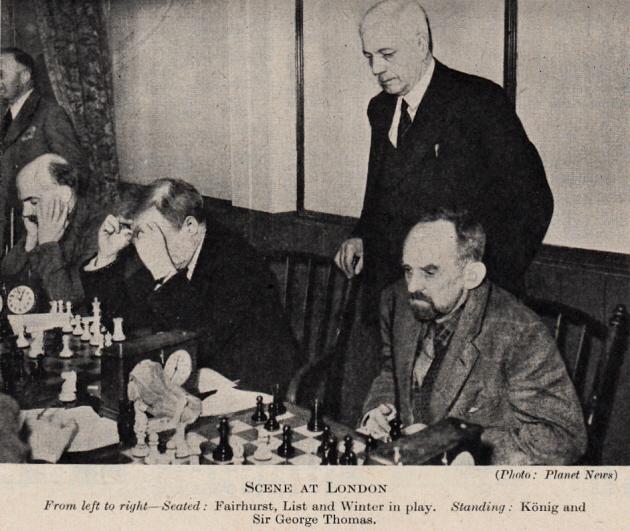


In Edge, Morphy and Staunton, we commented regarding Kenneth Whyld:
At his best, he was one of the best; at his worst, he was one of the worst.
Our article continued with some observations received from Dale Brandreth (Yorklyn, DE, USA)
3 August 2000:
‘I have never fully understood Whyld. With me he often just evades an issue or question. I suppose I am to be able to figure out what such non-responses mean, but I find that frustrating and inadequate.’
30 January 2004:
‘As an aside on the Edge letters, I know that in one of your Chess Notes Whyld was quoted as calling Edge an outright liar for his comments on Staunton. My considered view is that at least Whyld, and possibly Hooper too, very deliberately started the Morphy homosexual rumor to besmirch Morphy. If you read all of Edge’s letters, I think you, or anyone else, would have to agree that there is no suggestion that they had any kind of homosexual relationship. That doesn’t prove that Morphy was not a homosexual, but why even ever bring it up unless there exists some evidence to support such a theory? Despite all the hoohaw about how great a student of the game’s history Whyld was, I still think he was extremely devious and I greatly distrust his judgments on many matters having to do with chess.
He often ill-concealed his bias.’
1 February 2004:
‘Whyld repeatedly, in my experience, sought refuge in evasion and distortion when called upon to prove some of his assertions.’
Below are the opening remarks in our final contribution to the Chess Café Bulletin Board debate, on 1 August 2000:
From personal e-mail messages I know that many readers have found this “Morphy-Edge” thread a startling eye-opener, although not concerning either Morphy or Edge. They have been struck by three things: the sheer quantity of items criticizing Mr K. Whyld, the performance of the aforesaid individual, and the absence of any support for him from a single reader.
Without more ado, I propose a clear-cut test-case regarding Mr Whyld’s veracity. In 212-28 I wrote that in the late 1980s “I was simply one of a number of chess writers who, on various grounds, had become disillusioned with Mr Whyld”. In 212-30 he denied this vehemently (“... who are these others? I do not know a single one”). How interesting.
My “Frederick Edge – Background Facts and Quotations” article twice referred to a public letter dated 17 November 1989 from Frank Skoff (a former President of the USCF) to me, as editor of Chess Notes, with a copy sent to Mr Whyld. As the following small sample shows, Mr Skoff repeatedly expressed his disillusionment with Mr Whyld:
“He thinks calling people names (including myself) somehow is proof by itself.”
“As usual K.W. cites no sources of evidence.”
“All I get is repeated conjectures ..., pejorative rhetoric, and personal attacks on myself.”
“It is astonishing how little value K.W. places on truth: He prefers its suppression at any cost. Why?”
“Like so many of his dogmatic and unsubstantiated utterances, it should be thrown into the waste basket until he can come up with the required proof.”
“Absolutely untrue, and the last sentence [by K.W.] is a damnable lie and an unwarranted attack upon my integrity ...”
“That ‘ill-judged’ phrase is K.W.’s lazy, non-documented, non-researched, grossly deceitful way of avoiding going over my lengthy analysis ...”
Q.E.D. End of test-case.
Addition on 20 September 2024:
For K. Whyld’s treatment of the C.S. Howell-F.K. Young exchanges including a quip about chess and poker, see C.N. 12026, as well as Franklin Knowles Young.
Addition on 24 October 2024:
Nearly 34 years on, we show some observations by Jeremy Gaige about Kenneth Whyld, in an extract from a private letter sent to us on 5 November 1990:
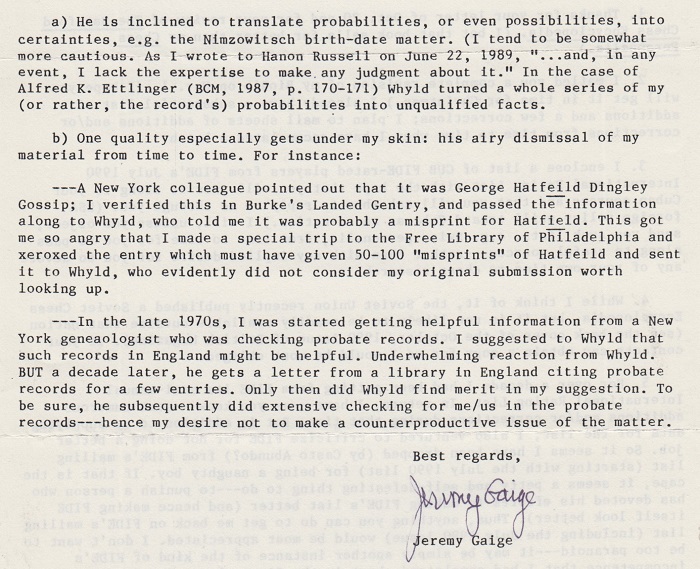
See also the references to the Oxford Companion to Chess at the start of our G.H.D. Gossip feature article (C.N.s 3241 and 3289).
To the Archives
for other feature articles.
Copyright Edward Winter. All rights reserved.